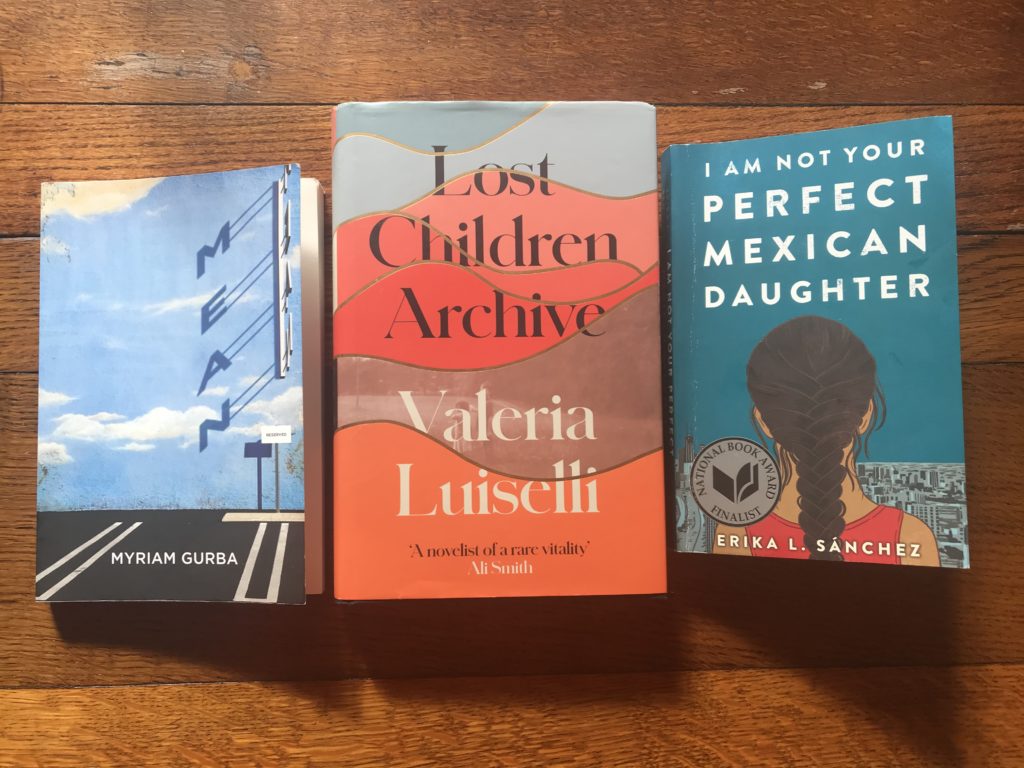
In early January and February 2020 an on- and off-line publishing storm unfolded over the publication and promotion of American Dirt (2020). Prompted by a lively and scabrous post describing it as “a racist brownface novel”, much of the debate ranged around the fact that it was receiving undeserved attention from influential celebrities such as Oprah Winfrey through her Book Club. Those who joined the fray were fellow Latinx authors angry at yet another narrative revisiting tired clichés about Mexicans and migration. There is much to learn through tracing the discussions and activism that coalesced in response to this novel when we think about who gets to tell stories and how the publishing industry and book promotion operates in the US (and elsewhere). I’ve mapped out some of this discussion previously, and I am sure there will be further scholarly work done in the near future. Meanwhile, prompted by the fact that the book has received a degree of “cultural consecration” (Bourdieu 2010 xxiv) in the UK featuring as it has on the BBC as Book of the Week (6-16 of April 2020), and inspired by others who have taken the opportunity to draw attention to authors that do merit attention, I would like to suggest alternative reading if you want to understand Mexican-US relations and its consequences on individual lives.
A post by Myriam Gurba prompted the discussion about American Dirt and, as a result, it is worth finding out more about her via her memoir Mean (2017). Whilst it is structured around a life-altering violent incident, much of the book considers what it means to come of age and come out in a small city in California as a Polish-Mexican. Often darkly humorous and sometimes self-effacing Gurba explores why being mean becomes a survival strategy in the face of racism.
Also centred on a violent incident, the young adult novel by Erika L. Sánchez, I Am Not Your Perfect Mexican Daughter (2019) explores the precarity of being the daughter of undocumented Mexican migrants in the US. The accidental death of Olga leads her sister, Julia, to find out more about someone she soon discovers was not the perfect daughter her parents had presumed she was. Told in a similarly darkly comic and energetic style to Mean, Julia’s quest is as much about figuring out her own future as it is about coming to terms with who her sister really was.
Another book that looks at childhood and the US border is the multi-award winning Lost Children Archive (2020) by Valeria Luiselli. It follows on from Luiselli’s short reflection on her time volunteering with undocumented children from Central America in New York, Tell Me How It Ends: An Essay in Forty Questions (2017). In some ways it appears to extend the same first-person character and reads as memoir, but it is a fiction loosely based on Luiselli’s life experiences as a Mexican living in the US. Lost Children Archive is structured around a journey taken by the protagonist, her husband, and their two young children from New York through the southern states of the US. It is a novel of family, kinship, and adventure, that weaves through the protagonists preoccupation with the news about the perils faced by the migrant children from Central America, and her own uncertainty as to what she can do to help them. Formally innovative and highly affecting, Lost Children Archive is a powerful narrative capturing the personal and political challenges of living as a migrant in twenty-first century US.
Dr Niamh Thornton, Reader in Latin American Studies, University of Liverpool
Reading List
Bourdieu, Pierre. 2010. Distinction: A Social Critique of the Judgement of Taste. Translated by Richard Nice. Abingdon: Routledge.
Gurba, Myriam. 2017. Mean. Minneapolis and Brooklyn: Coffee House Press.
Luiselli, Valeria. 2017. Tell Me How It Ends: An Essay in Forty Questions. Minneapolis and Brooklyn: Coffee House Press.
Luiselli, Valeria. 2020. Lost Children Archive. New York: Vintage.
Sánchez, Erika L. 2019. I Am Not Your Perfect Mexican Daughter. New York: Ember.

I didn’t like it either and switched it off. Pity the BBC Book of the Week doesn’t take advice from experts.